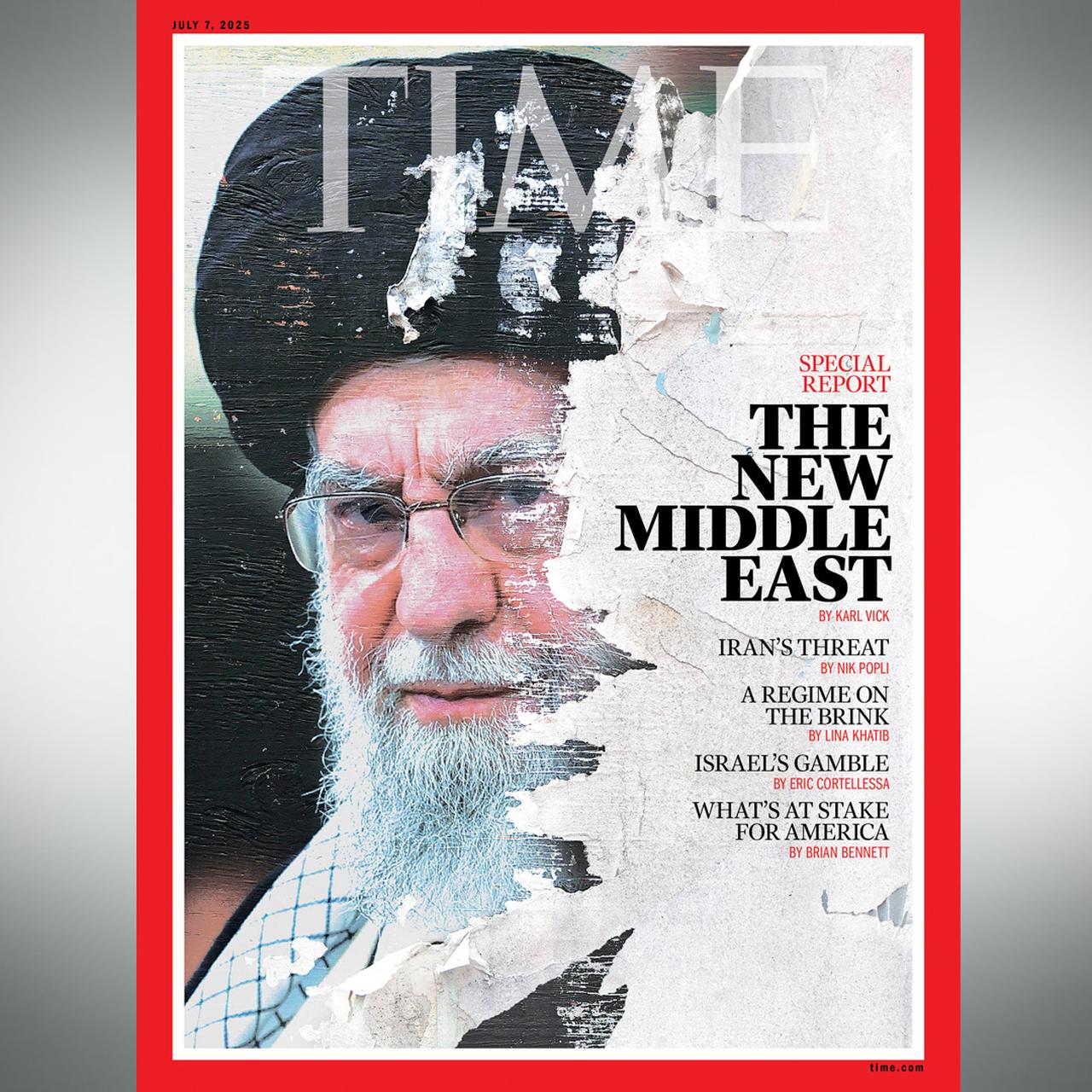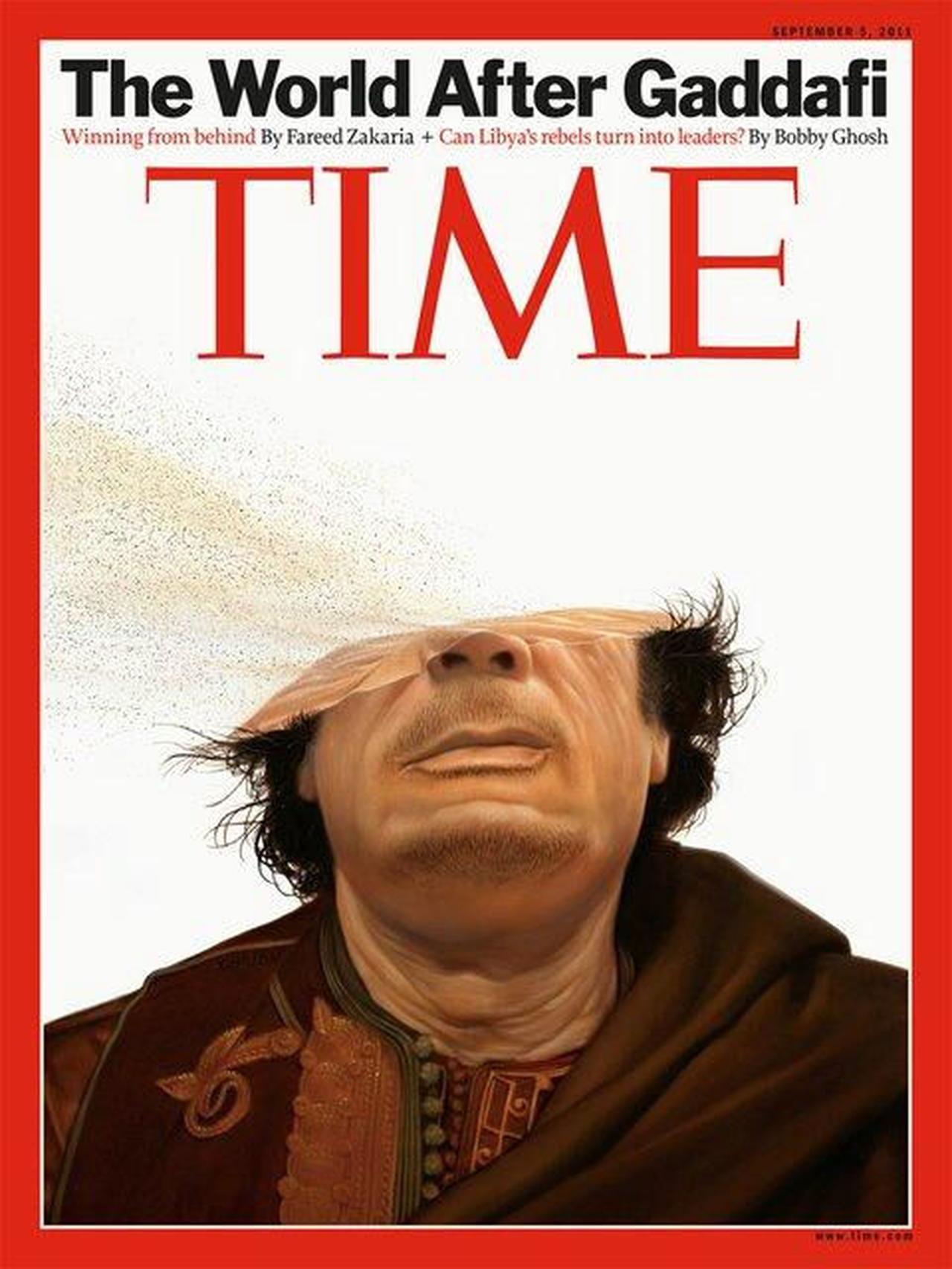
Time magazine’s June 2025 cover featuring Iran’s Supreme Leader Ali Khamenei has ignited online backlash, with critics accusing the publication of promoting regime change in Iran following Israel’s surprise attacks last week.
The cover, shared on X Thursday, shows a partially torn poster of Khamenei with the headline “The New Middle East” prominently displayed. Many users noted the design’s resemblance to past Time covers of deposed leaders Muammar Gaddafi and Saddam Hussein, both removed through U.S.-led regime change campaigns in the region.
The cover evoked comparisons to the magazine’s March 10, 2003, issue titled “Life after Saddam,” which featured a painter whitewashing a poster of Iraqi leader Saddam Hussein weeks before the U.S. invasion of Iraq. The invasion led to Hussein’s capture and years of conflict.
Similarly, the September 5, 2011, issue titled “The World After Gaddafi” showed half of the Libyan leader’s face erased, symbolizing his fall..
Regional tensions escalated on June 13 when Israel launched airstrikes on multiple Iranian sites, including military and nuclear facilities. Tehran responded with retaliatory strikes.
Israeli officials report at least 25 deaths and hundreds injured from Iranian missile attacks. Iranian media say 639 people have died and more than 1,300 have been wounded in Israeli strikes.

U.S. President Donald Trump said Thursday he will decide within two weeks whether to carry out strikes on Iran.
“Based on the fact that there's a substantial chance of negotiations that may or may not take place with Iran in the near future, I will make my decision whether or not to go within the next two weeks,” Trump said in a statement read by White House spokesperson Karoline Leavitt.
Trump faces division within his Republican base over involvement in Israel’s campaign against Iran. Prominent voices including media personality Tucker Carlson, strategist Steve Bannon, Senator Rand Paul and Representative Marjorie Taylor Greene have cautioned against direct U.S. military action.
On Friday, Trump downplayed the chance of asking Israel to halt attacks, warning Tehran has a “maximum” of two weeks to reach an agreement.
“I think it's very hard to make that request right now. If somebody's winning, it's a little bit harder to do than if somebody is losing, but we're ready, willing and able, and we've been speaking to Iran, and we'll see what happens,” he told reporters after arriving in New Jersey aboard Air Force One.